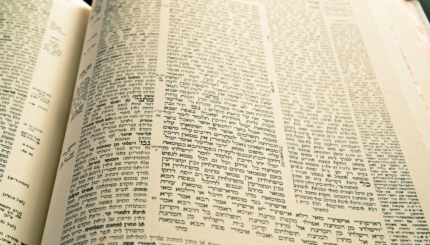When stories are told, we sometimes see them through the lens of the characters, sometimes from the vantage point of the omniscient narrator, and often from a combination of the above. This week’s Torah reading presents a fine example of this. This is shaped in part by a Midrash, the result being of that which looks on the surface as a laudatory moment contains within it much greater moral complexity.
Numbers 11:26-29
26. Now two men remained in the camp; the name of one was Eldad and the name of the second was Medad, and the spirit rested upon them. They were among those written, but they did not go out to the tent, but prophesied in the camp. 27. The lad ran and told Moses, saying, “Eldad and Medad are prophesying in the camp!” 28. Joshua the son of Nun, Moses’ servant from his youth, answered and said, Moses, my master, imprison them!” 29. Moses said to him, “Are you zealous for my sake? If only all the Lord’s people were prophets, that the Lord would bestow His spirit upon them!”
There are many questions here including the identity of the lad and the sudden appearance of Eldad and Medad. This passage and its larger context deserve much study.
There is a powerful contrast between Joshua and Moses. What Joshua sees as a threat to Moses by Eldad and Medad, Moses views as a cause for celebration. The capacity of Eldad and Medad to prophesize is a sign of their greatness and is not to be viewed as an act of rebellion against Moses. Moses is happy for others to share the spirit of God.
But the story does not end here. The Midrash picked up by Rashi describes the following scenario. “R. Nathan says: Miriam was beside Zipporah (Moses’s wife) when Moses was told that Eldad and Medad were prophesying in the camp. When Zipporah heard this, she said, “Woe to their wives if they are required to prophesy, for they will separate from their wives just my husband separated from me.”
For Moses’s wife, the achievement of prophecy is a tragedy. Her fear is for the wives of Eldad and Medad. To be the wife of a prophet as great as Moses is to be abandoned by her husband. Moses has experienced so much of the presence of God that he can never return to his tent and be intimate with his wife. Zipporah understands that Eldad and Medad are indeed a threat, but not to Moses, but rather to their families and wives in particular.
It is this very complexity and mixture of viewpoints that draws me to Torah. However the attraction cannot only be to the pleasure of reading the text. Rather moral questions must emerge from Torah as well. Who suffers for my spiritual success? As I strive for meaning and purpose do I leave anyone behind in the wake? Through whose lens do I properly judge a situation? Torah calls me to face these questions. And rabbis should ask them on a regular basis.
Midrash
Pronounced: MIDD-rash, Origin: Hebrew, the process of interpretation by which the rabbis filled in “gaps” found in the Torah.
Torah
Pronunced: TORE-uh, Origin: Hebrew, the Five Books of Moses.


